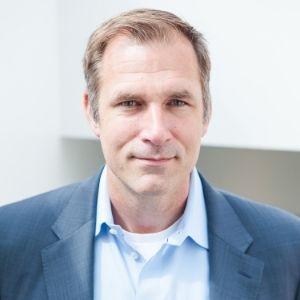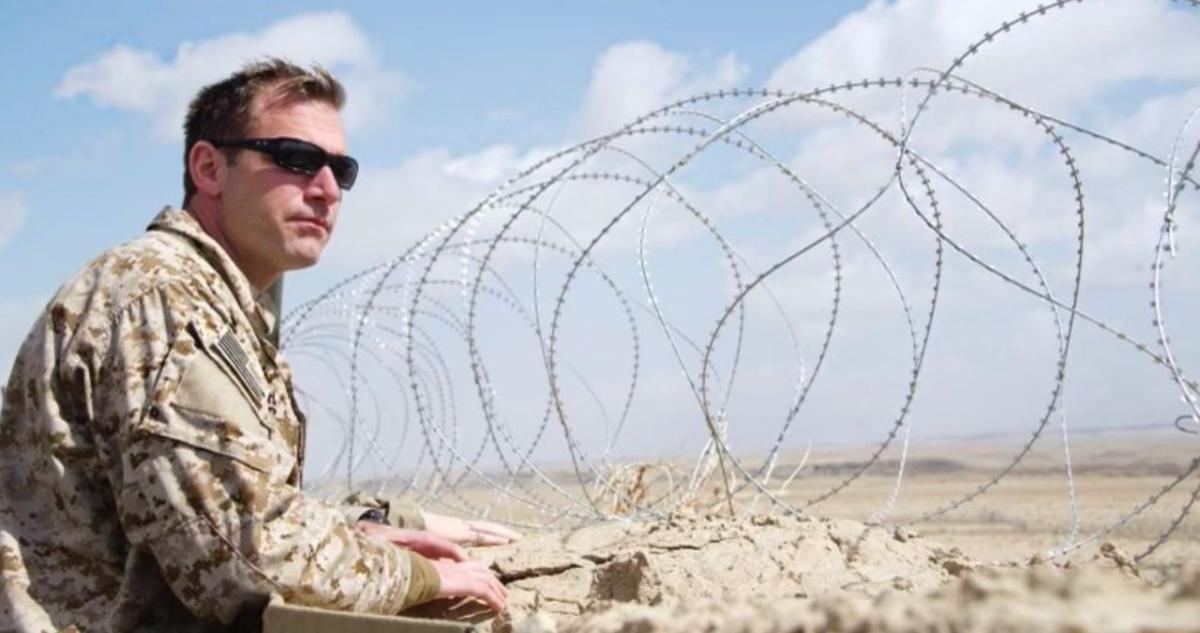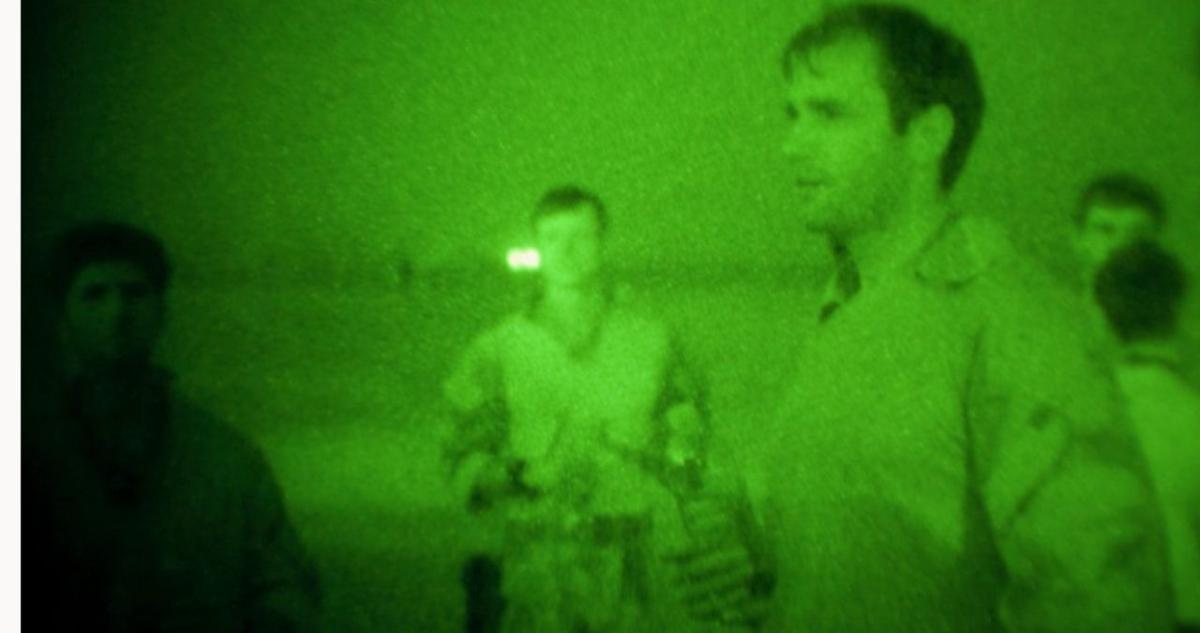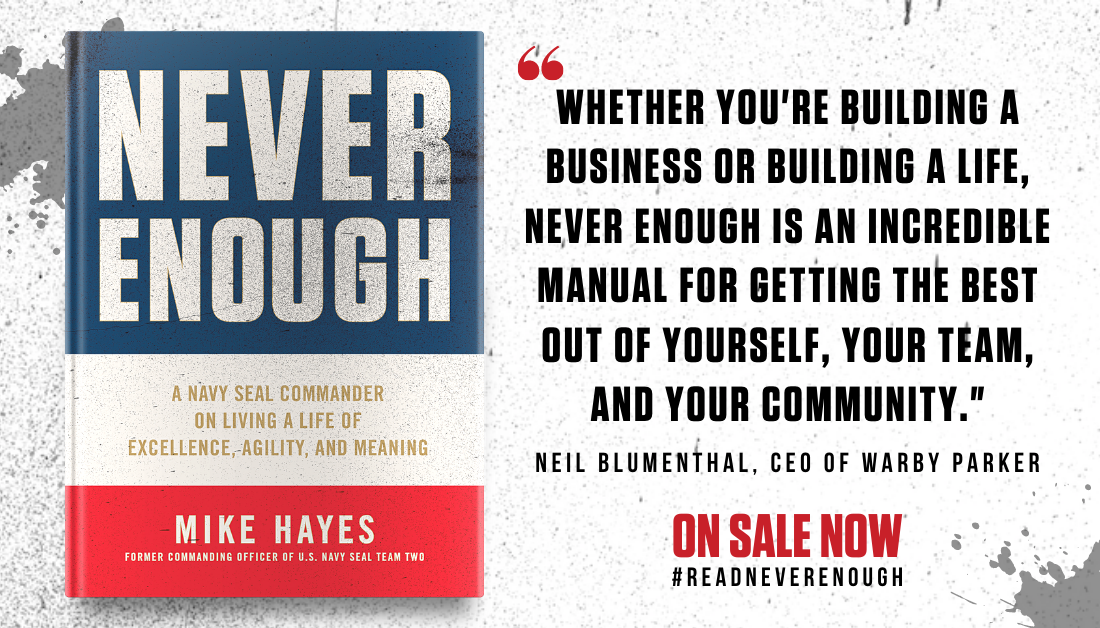“Never Enough”: A Navy SEAL Commander on Living a Life of Excellence, Agility and Meaning
I’ve served in many roles: U.S. Navy SEAL Commander, White House Fellow, private sector asset management, sales and operations, and now, chief digital transformation officer at VMware. I am often asked about what leading a SEAL team has in common with a world-class software company. I tell people that it’s all about mission, meaning and impact—no matter what hard challenges you’re working on.
Leadership is leadership, no matter the setting. And solving difficult problems involves the same kinds of skills and considerations in just about every scenario. Chief among those considerations: an eye on giving back however you can and contributing to the world in your own unique way. In that spirit, I’m delighted that Celadon Books/Macmillan Publishers published my book, Never Enough.
In the book, I share stories and lessons from my experiences as a SEAL, in government and in the private sector. And I believe my learnings can help us all maximize personal growth and our contributions to companies, customers and the world.
I’m especially excited, because I’m donating all my profits to a cause I deeply believe in. I named The 1162 Foundation after the date U.S. President John F. Kennedy commissioned the SEALs—Jan. 1, 1962. The nonprofit pays off mortgages for Gold Star families after a service member is killed in action. If I can help alleviate some small part of a surviving family’s burdens, my efforts will have been more than worth it.
As the book launches, I want to highlight a few lessons that I believe can apply to readers on the battlefield or in the private sector. Each proved invaluable to me as I’ve worked to improve my individual excellence, the agility of organizations and my personal impact on the world.
1. Doing hard things is not the same as doing risky things.
As a SEAL and in business, often the biggest risk is standing still. Putting in the hard work to plan, move and keep inventing (and reinventing) is what sets you up for success. (In the book, I share a story about the time I detonated a needlessly large explosive and nearly blew an airplane out of the sky!)
2. We are who we are at our worst.
Delivering excellence for our customers, partners and colleagues is easy when things are going well. The challenge is to be our best selves when things are at their worst. We can’t let circumstances—bad communication, broken systems, mistakes or errors —make someone’s experience suffer. We must be excellent even in the hardest scenarios. (In the book, I discuss the time I was taken hostage in Peru and lived to tell the tale.)
3. The more I hurt, the less my teammates hurt.
How can we make things easier for the people around us? How can we be problem-solvers instead of problem-creators? If something isn’t working, how can we do more than just pass it off to someone else, but work to fix it now and for the future? (This lesson certainly plays out on the battlefield as much as in the office, where we can all choose to step up and save the day.)
4. The first decision is when to make the decision.
How do you figure out all the inputs you need and when you need to actually make the call? How do you marshal all that data and put it into action? (I tell a story in the book about rationing blood in our blood bank, ultimately saving a teammate’s life.)
5. An individual can fail. An organization can’t.
We must put systems in place that make success easy and natural. This ensures that even when things don’t go according to plan, there are backups to catch and correct the failure. We can tolerate individual failure, but we can’t allow one person’s shortfall to bring down the entire company.
6. Learn how to think, not what to think.
How are decisions getting made? And can we create systems so decisions are not one-off events? Can we put machinery in place to automate the decision process and make sure there is consistency and logic across the organization? (I open the book with a life-or-death situation that illustrates this battlefield lesson.)
7. Live with integrity and transparency.
We can’t just tell people what they want to hear. We have to tell them the truth. And we have to own our failures and commit to doing better next time. We must be driven by trust and honesty, and never be tempted by shortcuts that compromise our values. (The New York Times wrote a frontpage story about a scandal within the SEALs that happened during my time overseas. And I had to be able to look in the mirror and know I was proud of every action I took.)
8. You can never know the future, so make the best decision for now.
We are constantly transforming. We do what we can right now, and then understand that plans will change and industries will evolve. The expectation for the future is that the unexpected will happen. (My experience working in the White House for Presidents George W. Bush and Barack Obama taught me this lesson over and over.)
“Never Enough” contains many more lessons about excellence, agility and meaning. I focus on how we can all lift the people, organizations and causes in our lives. My hope is that readers realize that mission, meaning and impact are not just central to success. They are success.
To purchase the book, visit bit.ly/never-enough-book. All my profits will go to The 1162 Foundation. For bulk orders, please reach out to me and I can loop in the publishing team.





